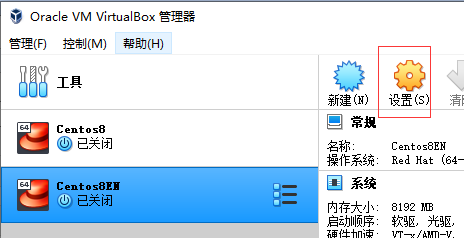[Commands used were against VirtualBox version 4…]
6.1.16 is the latest version of VBoxGuestAdditions Download VBoxGuestAdditions6.1.16.iso now. From http://download.virtualbox.org/virtualbox/6.1.16. $ pac list virtualbox local/virtualbox 6.1.6-1 Powerful x86 virtualization for enterprise as well as home use local/virtualbox-ext-oracle 6.1.6-1 Oracle VM VirtualBox Extension Pack local/virtualbox-guest-iso 6.1.6-1 The official VirtualBox Guest Additions ISO image local/virtualbox-host-modules-arch 6.1.6-1 Virtualbox host kernel modules for. Download and install the Oracle VM VirtualBox Extension Pack on the host. On your computer. VirtualBox Guest Additions are a set of device drivers and system applications which are designed to be installed in the guest operating systems of VirtualBox.Guest Additions are available as an ISO image for Windows, Linux, Solaris or OS/2.
Sometimes you don’t want to use a lot of disk space on your VirtualBox for install software or any ‘temporary’ need of space.
Adding shared folders from your host to your VirtualBox guest is a good option to use. If you have a Windows guest and a GUI based Host, it it’s very easy; click, click, done.
But if you are using a command line based guest and/or host, it a bit more complex. Use this post as a guideline, Linux knowledge is assumed…
Manually installing VBoxGuestAdditions [windows guest]
To easy… from the host command line, the guest additions are installed automagically on the Windows host machine.
Vbox Guest Additions Iso Download
Manually installing VBoxGuestAdditions [linux guest]
Steps

0. Guest: Common Errors
1. Host: ‘Putting the Additions in the DVD drive’
2. Guest: Mount the DVD
3. Guest: Install Additions (in case of errors, see 0.)
4. Guest: Unmount the DVD
0. Common Errors: Make sure GCC, MAKE and KERNEL-DEVEL (headers) are installed…
If not installed, you might run into next trouble:
To see what went wrong run ‘/etc/init.d/vboxadd setup’:
Correct what went wrong and run ‘/etc/init.d/vboxadd setup’ again:
1a. Find the IDE Controller device numbers
1b.Get the port and device numbers
1c. If not found, add it
1d. Attach the VBoxGuestAdditions.iso as dvddrive
Port and device numbers needed here!
2. Mount the DVD drive on Guest OS
3. Install VBoxLinuxAdditions
If you encounter errors here, see: ‘0. Common Errors‘.
4. Done? Unmount and remove
Uninstall VBoxGuestAdditions
Adding/removing shared folders to VirtualBox
Vbox Additions Iso
Adding shared folders without a VirtualBox GUI is done like this, “vbox_name” is the name of your virtual machine, “–name install” is the name of the vboxsf name in the guest, “–hostpath /install” is the folder on your host system.
On the guest it’s automounted to ‘/media/sf_install’, otherwise mount (again) with:
VirtualBox downloads
Guest Additions Vbox Download
Done… Happy sharing!
